Affiliate disclosure: This post may contain affiliate links. Please see our Privacy Policy.
Thinking about adding geese to your homestead?
Geese are remarkably easy to tend, and in many ways, they’re easier than chickens. They’re self-sufficient, and generally excellent mothers.
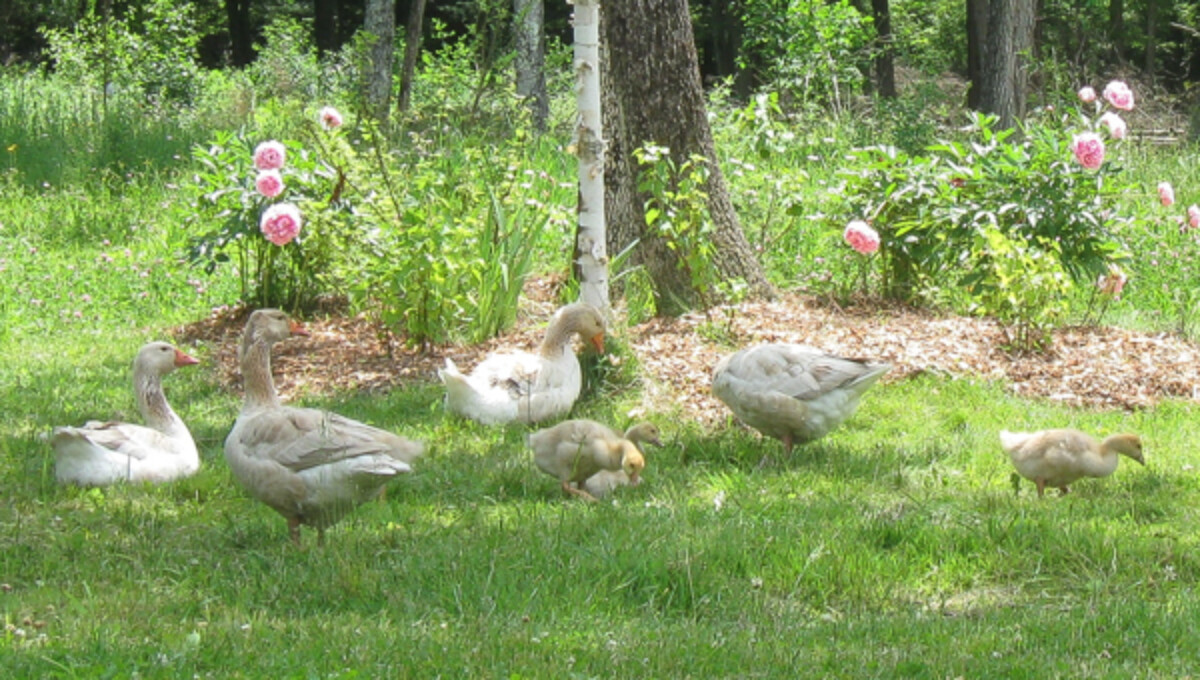
While they can be easier than chickens, they’re also quite different than chickens. I’d recommend getting a good book on goose husbandry to fully understand their requirements before jumping in.
The Modern Homesteader’s Guide to Keeping Geese is a great comprehensive beginners guide, and Keeping Geese: Breeds and Management is another great specific goose raising guide. For a more general guide to poultry, there’s no better book than the Storey Guide to Raising Poultry which covers just about every type of backyard poultry, including geese.
Here are just a few ways geese differ from chickens.
Geese are Grazers
Unlike ducks and chickens, which prefer bugs and high-protein food, geese are grazers. They have a digestive system that’s much like a horse, and they’re made for quickly converting grass into meat and eggs.
Be sure they have access to greens, as well as standard un-medicated poultry food. Medicated poultry food is dosed for chickens, and can be toxic to other breeds.
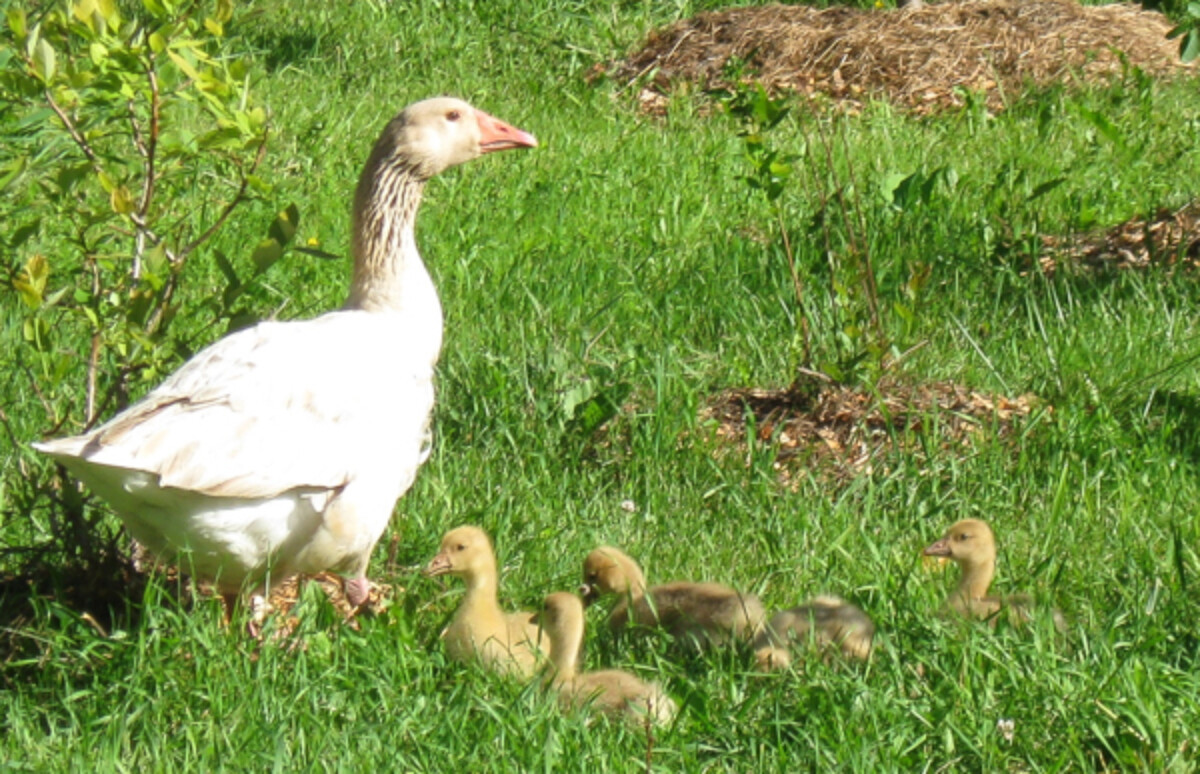
Geese are Very Hardy
Even in very cold climates, they prefer to stay outside during daylight hours. Ours would lay out on the snow contentedly grooming themselves even in the harshest blizzard.
With that in mind, they only need the most rudimentary housing, just enough to keep predators from getting to them.
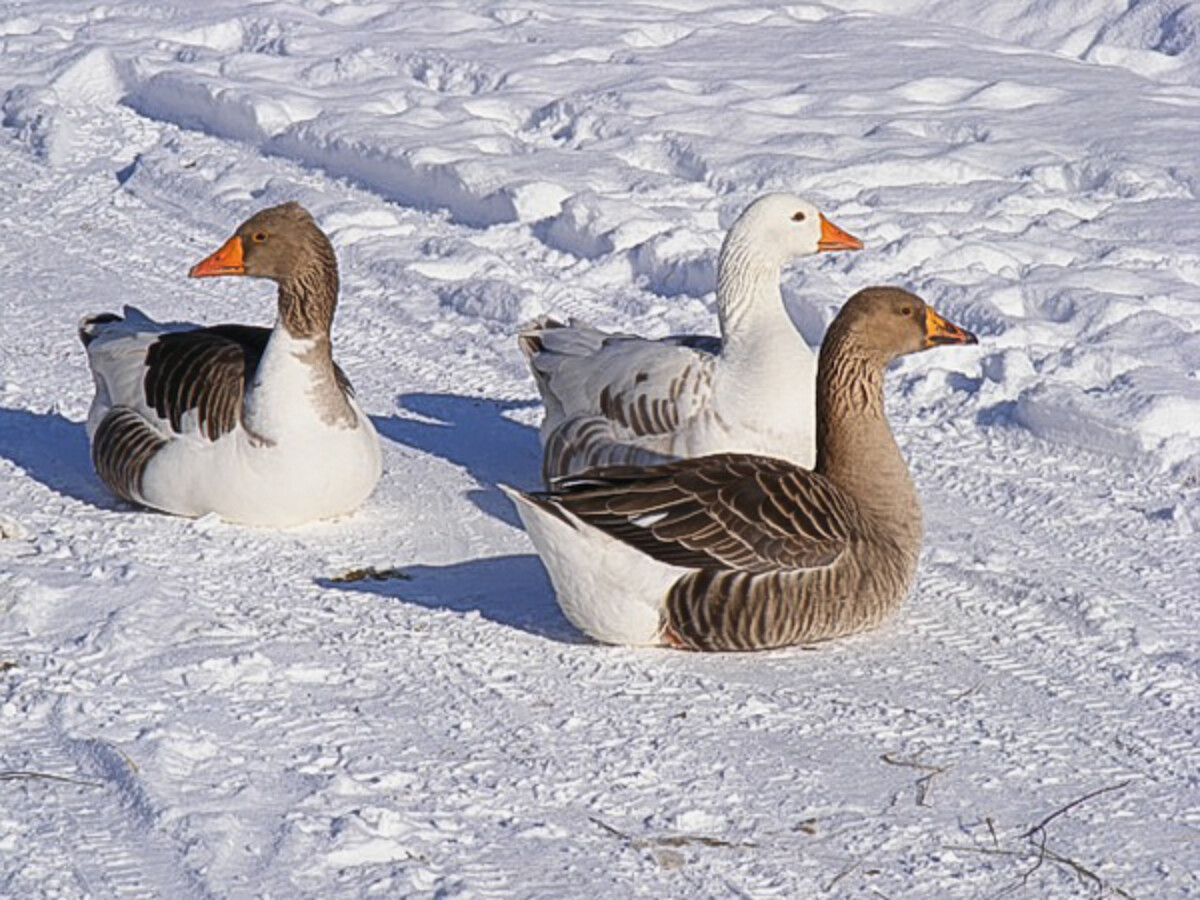
Geese Can Defend Themselves Better than Chickens While Free Ranging
Geese make excellent free-range birds because they’re excellent at defending themselves against predators. Some mixed flock poultry keepers add them to a flock to help keep chickens safe while free-ranging.
While geese are great at fending off intruders during the day hours, they have very poor night vision. They can’t fight off what they can’t see, so be sure they’re locked up safe in the evening.
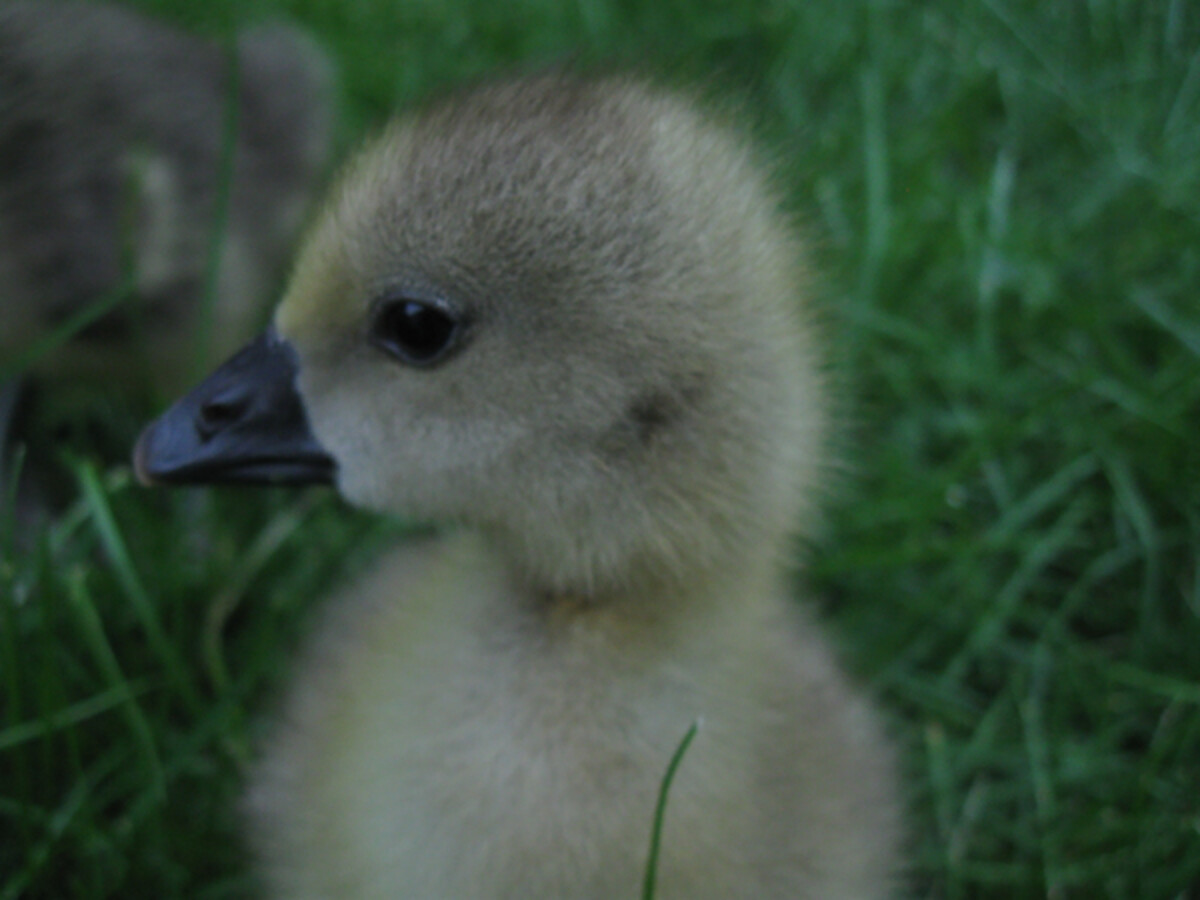
Geese Don’t Roost
Geese have large feet for walking over the soggy ground or for paddling through water. Those feet are very different from chicken feet, or any bird that uses a perch.
They’re ground-based birds, and they need able clean floor space in their coop as well as large nesting boxes on the floor. They won’t be able to access raised chicken nesting boxes.
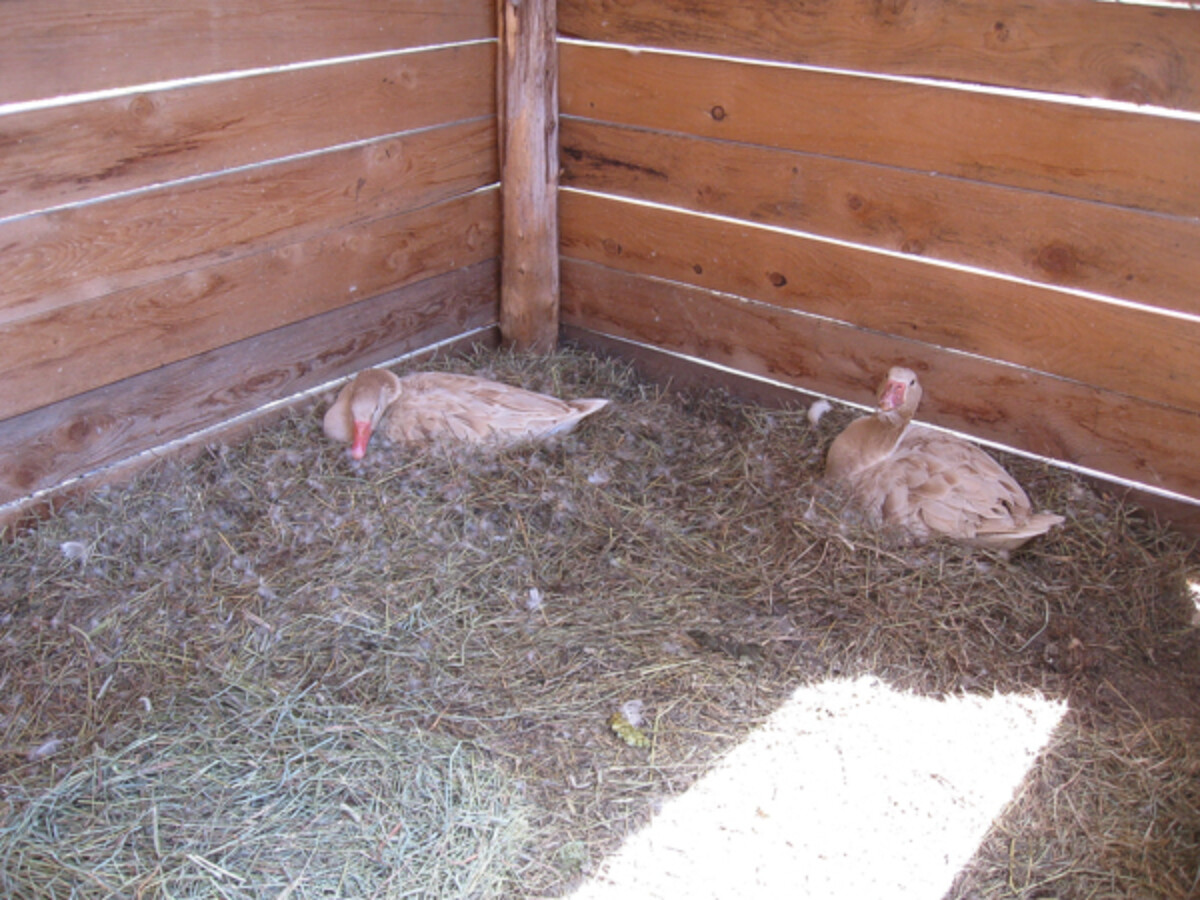
Geese are Water Birds
Geese are water birds, and they’re happiest when they have water to bathe, but you don’t need a full pond. They’re happy with a small kiddy pool to splash in during the warm months. In the cold months, we’d bring them warm water daily and they’d rely on eating snow for much of their liquid.
Be careful that their winter water source is small and not easily spilled. They’ll try to climb in to bathe, and then afterward they’ll freeze their breasts and feet to snow and ice.
It’s best to keep them dry as possible in the winter months if you’re in a cold climate. Though eating snow may seem harsh, it’s much nicer than trying to chip a panicked goose out of ice.
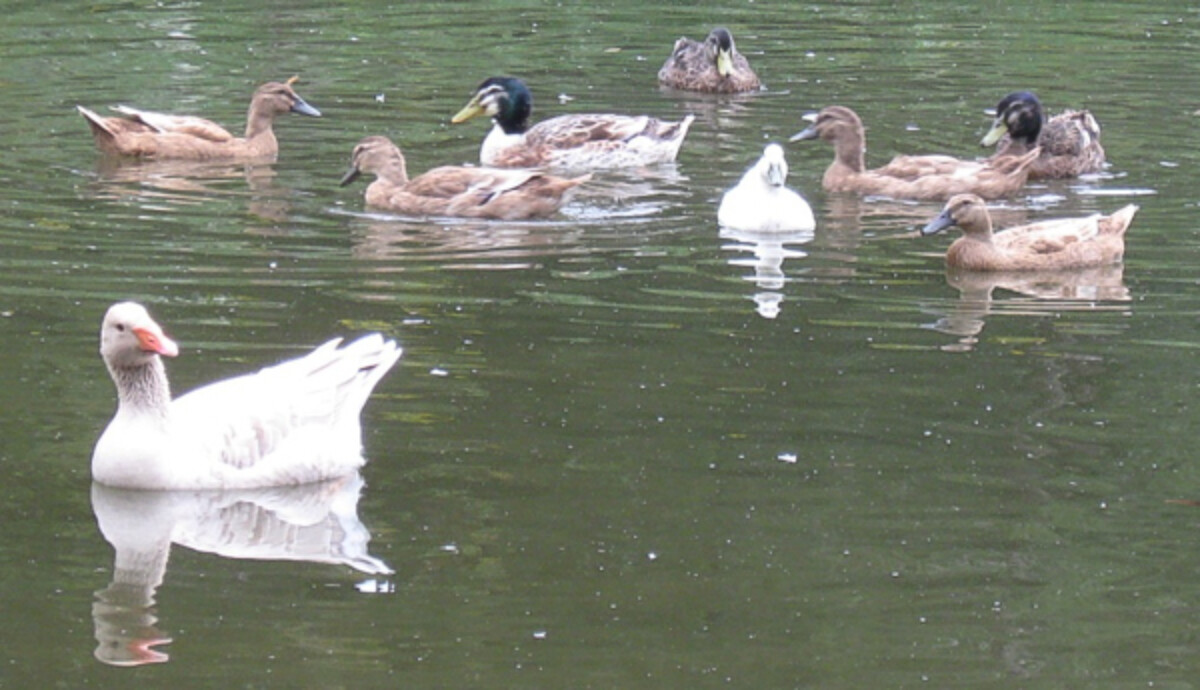
Goose Eggs Need Moisture to Hatch
While chickens are land birds with very dry nests, goose mothers actually have to bathe to wet their feathers to keep their eggs moist during incubation. To hatch goose eggs in an incubator, you’ll need to follow specific protocols. See The Modern Homesteaders Guide to Keeping Geese for details.
All that extra moisture means that goose eggs are a bit different than chicken eggs when it comes to cooking. The yolks are much larger and richer, but the white is runnier.
I love making homemade custard or waffles with the goose egg yolks, but don’t try to make a meringue with the whites. They just won’t whip up right.
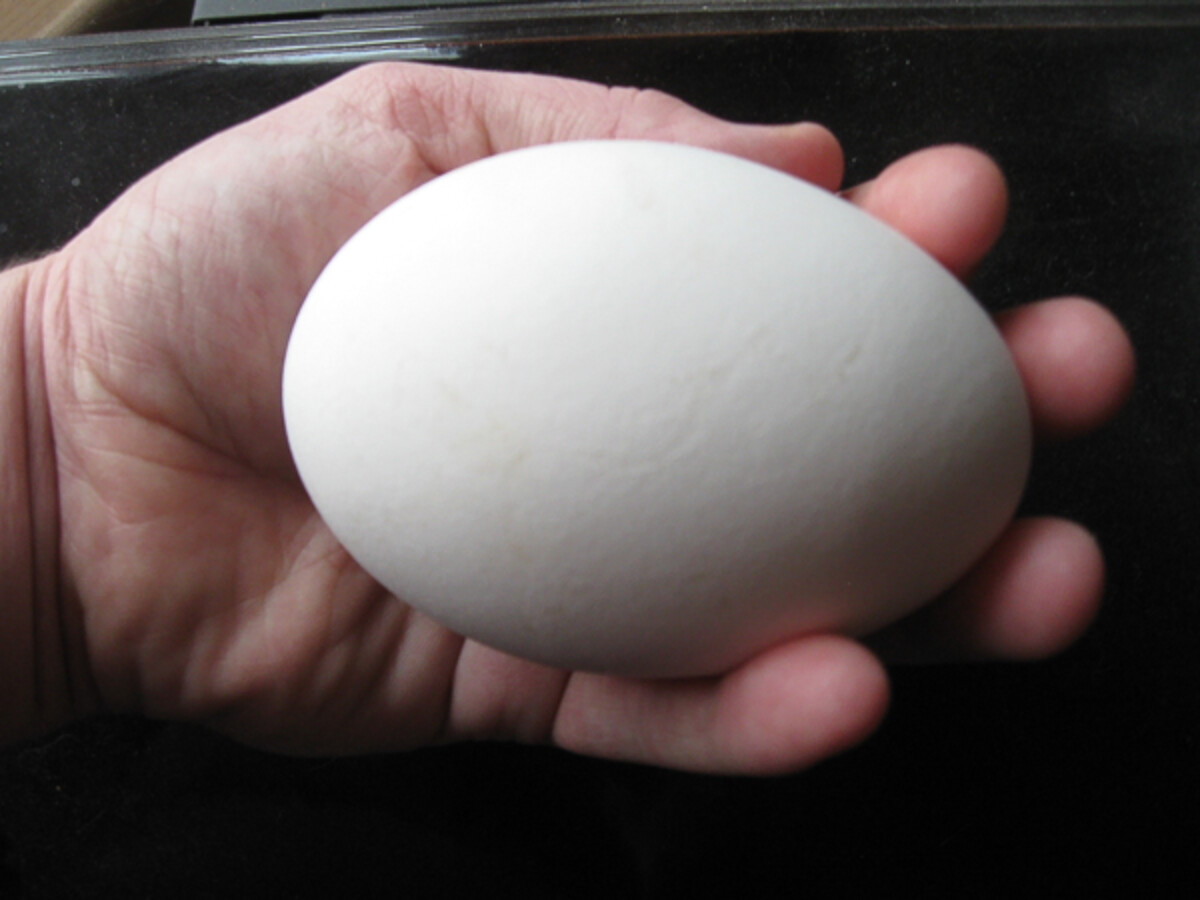
Goose Meat is More Like Beef than Chicken
If you intend to raise geese for meat, you’ll be pleasantly surprised that goose meat tastes more like beef than poultry. For small-scale homesteaders, goose meat is a great way to get some variety into their harvests without actually taking on the responsibility or expense of raising a cow.
Even if you’re not intending to harvest geese for meat, there’s always the occasional gander that just can’t be tamed. It’s nice to know that if you do need to harvest to curb attacking behavior that you’re in for a rare treat.
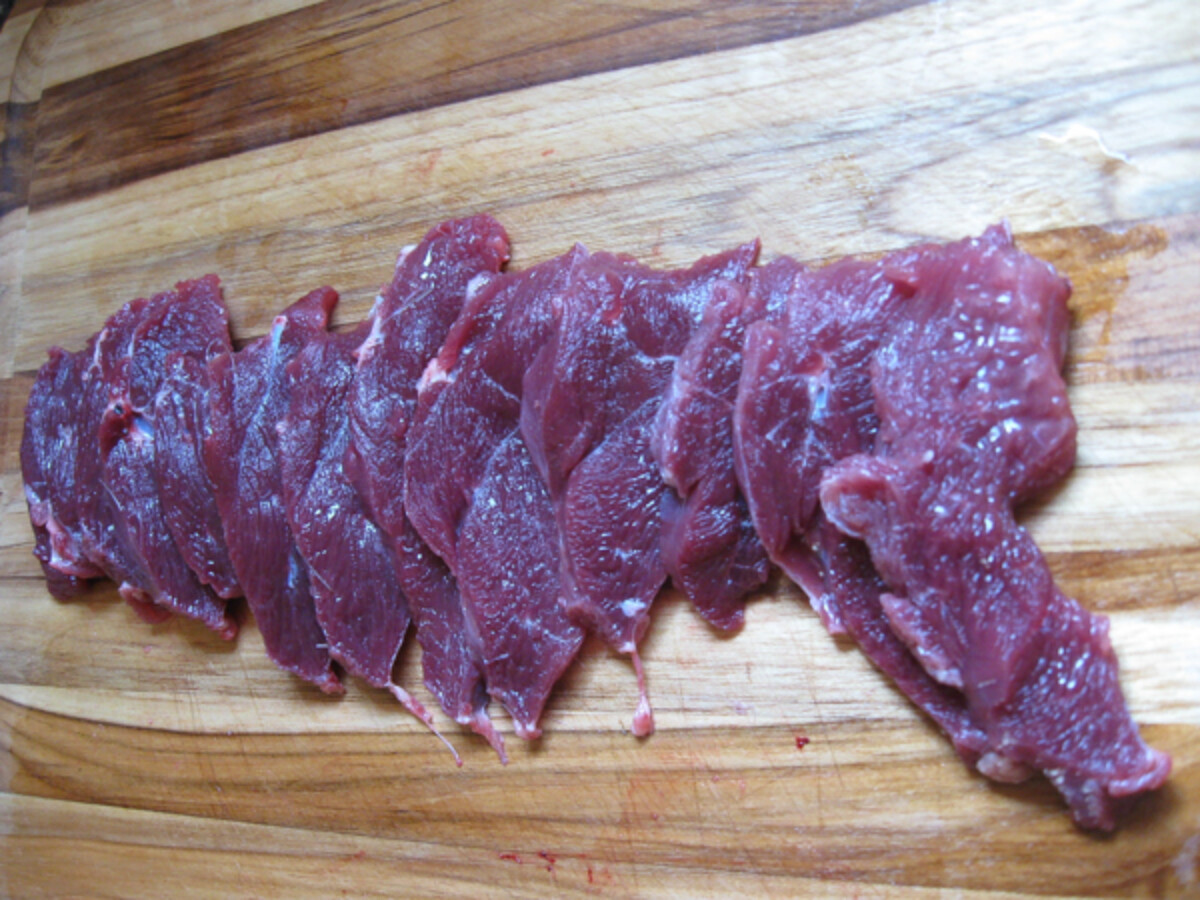
But Aren’t Geese Aggressive?
Geese have a bad reputation for aggression, but more often than not that has to do with handling more than anything else.
Hand-raised geese are devoted to their owners, and welcome them in as part of the flock. Geese hand raised on our homestead are more lap animals than farm animals.
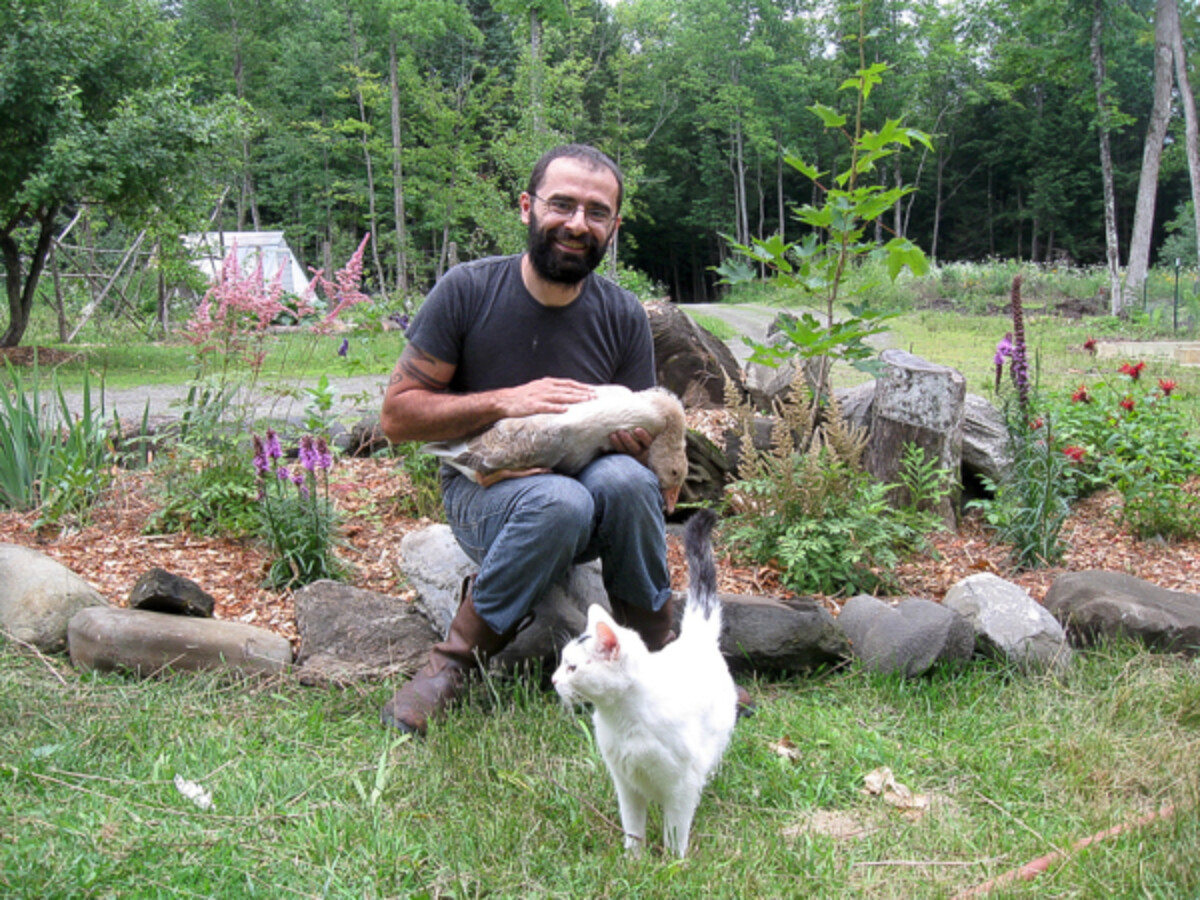
Our geese would welcome us when we came home, come when called and circle our ankles nuzzling just like house cats.
While they accept you as part of the flock, visitors might be a different story. Our family of friendly geese needed to be locked in when friends visited, and we had to work out a fencing compromise with the UPS guy. Anyone outside of their known flock was liable to attack.
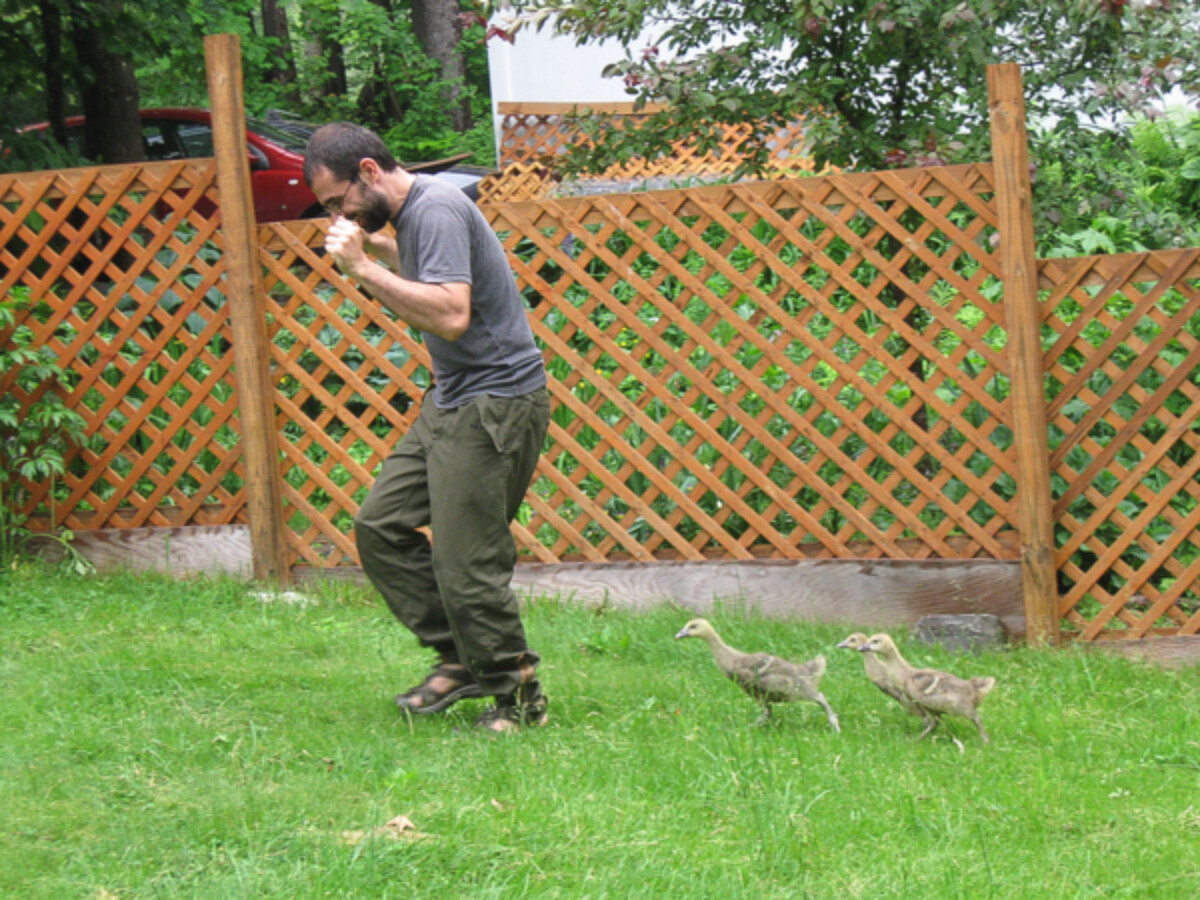
This “guard dog” behavior makes them great additions to the homestead in very rural areas where you don’t see a lot of visitors. Geese are still used to this day as “guard dogs” in prisons because they can’t be bribed like real dogs, and they’re fierce at defending their territory against intruders.
The same is true of your homestead. I’d pit my geese against a burglar any day.
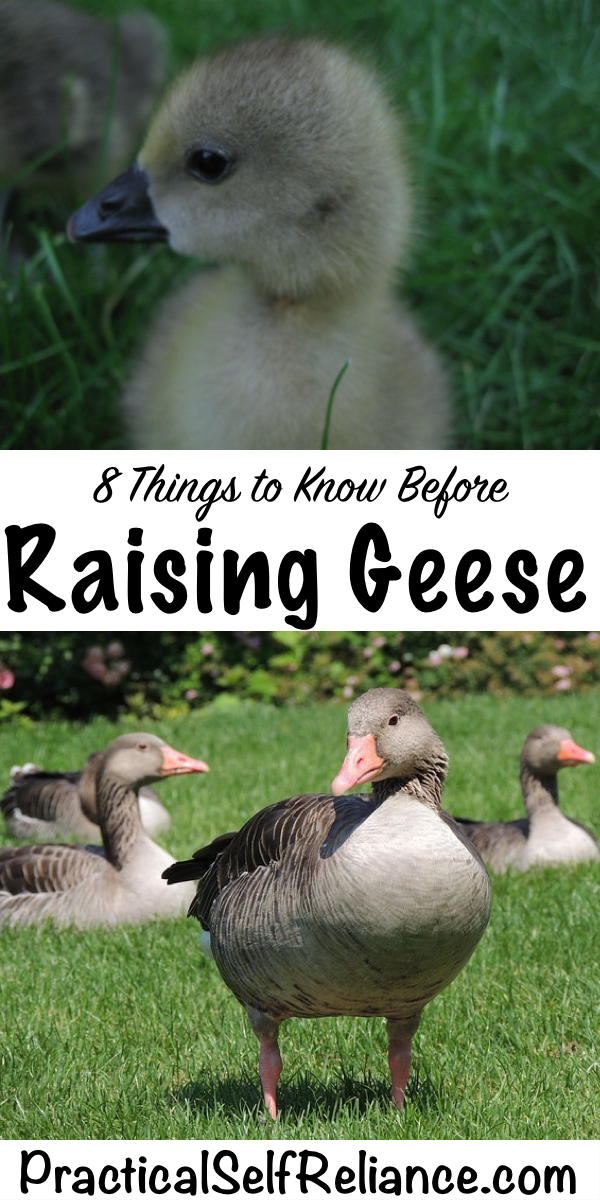
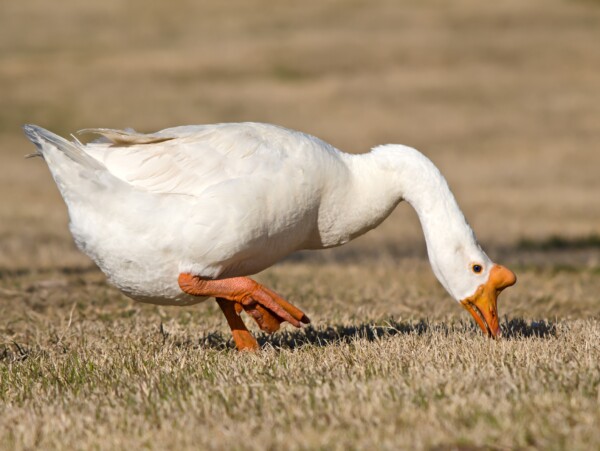

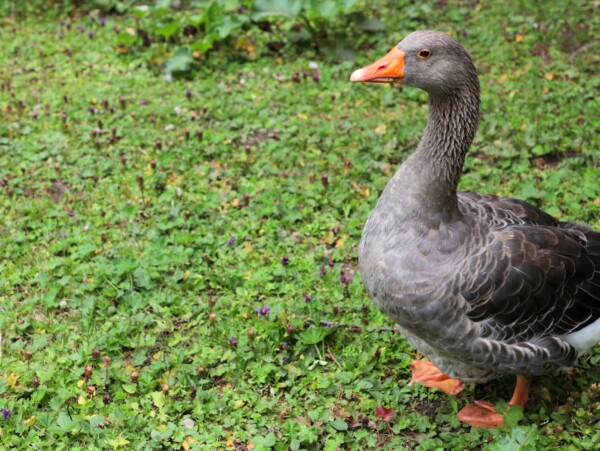
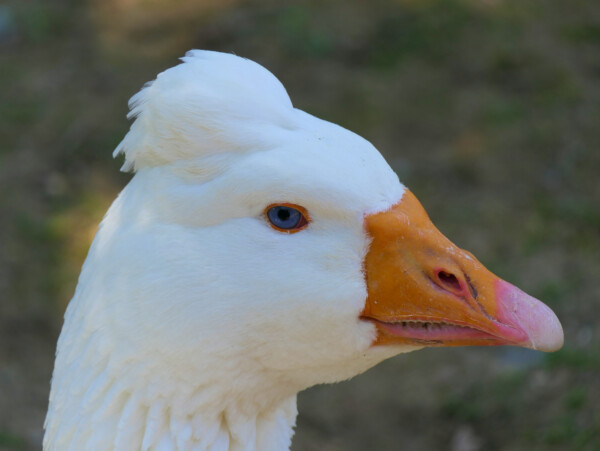









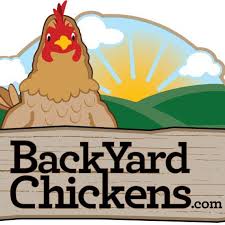
Hey, Ashley, I’ve been following your blog for years and wanted to let you know how much I appreciate the work you’ve put into it. Every time I search a random topic and discover you already have an article written about that same topic, I think, “Thank goodness!” I know your writing is thoroughly researched, something you’ve probably already tested at home, and doesn’t contain superfluous nonsense. Thank you for being such a consistently reliable source of information!
You’re very welcome. Thank you so much for your kind words. We’re so glad you enjoy the articles.
We adopted two one-year-old Roman geese last year. They came from a family of two lovely adults, their sweet child, and a horrible grandmother. The geese love my husband, but hate me (and guests). They attack me and seem to be getting worse. We’ve noticed that suddenly they are also going after my husband, though he seems to be able to stop them from biting him. What’s going on with their change in behavior toward my husband and how do I show them I’m a friend? I’ve tried everything we’ve come up with, but they seem to feel very threatened by me. We assume the former grandmother was as mean to them as she is to human beings.
I found this recipe from Cackle Hatchery that might be helpful for you. https://www.cacklehatchery.com/how-to-deal-with-an-aggressive-goose/
I’m thinking of adding a goose to my mixed flock of chickens and ducks. I have a dog but he’s inside half the time and I’ve heard geese can help keep watch 🙂